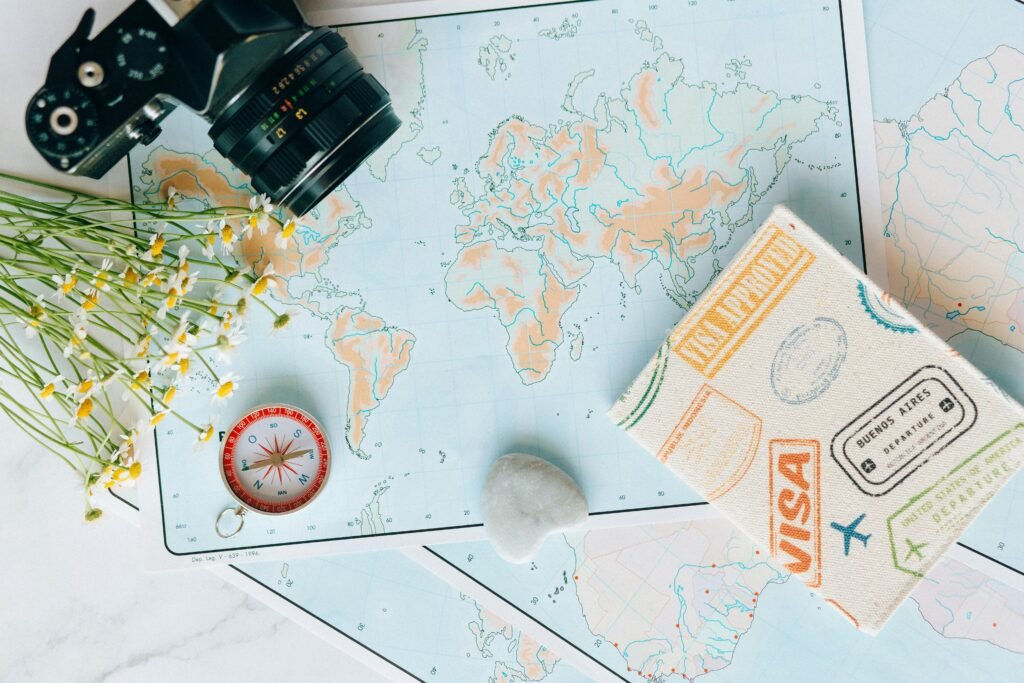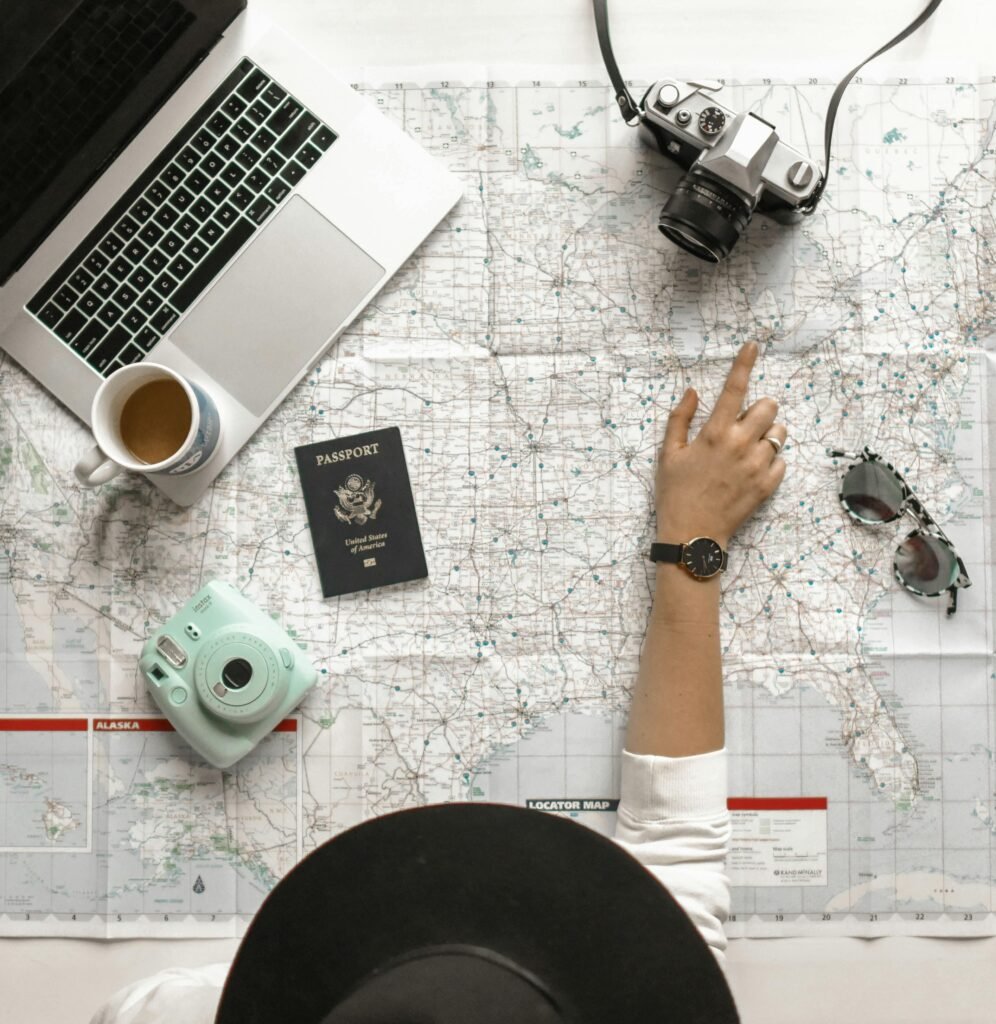Introduction to Trip Planning
Trip planning is a critical component of the travel experience, influencing not only the enjoyment of the journey but also the overall satisfaction derived from it. As travelers become increasingly sophisticated, the need for effective planning has gained prominence. With a plethora of options available, travelers must choose between two primary methods: the DIY (Do It Yourself) approach and utilizing the services of a travel agency.
The DIY method entails independent research and route creation, allowing travelers the freedom to customize every aspect of their journey according to personal preferences. This approach has gained traction among those who desire a high degree of flexibility, making decisions based on individual interests, budget considerations, and travel times. Furthermore, technological advancements have facilitated accessibility to myriad online resources, enabling enthusiasts to design personalized itineraries tailored to their unique requirements.

On the other hand, travel agencies offer professional expertise and a wealth of resources that can simplify the trip planning process. With access to exclusive deals, in-depth knowledge of destinations, and ability to manage unexpected circumstances, travel agencies can streamline the experience for those who prefer a hands-off approach. This method appeals particularly to travelers who may be overwhelmed by the complexity of modern travel arrangements or who wish to maximize their time at the destination rather than spend it planning.
As the travel landscape continues to evolve, a growing number of travelers are seeking personalized experiences that go beyond standard itineraries. They are increasingly drawn to comparison of these two approaches—DIY versus travel agency—to better understand their advantages and limitations. In doing so, they can select a trip planning method that aligns with their preferences, ensuring a fulfilling and enjoyable travel experience.
Pros of DIY Trip Planning
Planning your trip independently offers several advantages that can significantly enhance your travel experience. One of the primary benefits is the flexibility that comes with a DIY approach. When you take the reins on planning, you can adjust your itinerary on the fly, allowing you to spend more time in places that capture your interest or skip those that do not meet your expectations.
Another major advantage is the control over your travel plans. With a DIY trip, you have the ability to choose every aspect—from the destinations you wish to explore, the accommodations you prefer, to the activities you are keen on experiencing. This autonomy often leads to a more personalized journey that aligns closely with your individual interests, tastes, and budget.
Cost savings is another significant aspect of planning your trip independently. When you forgo travel agency packages, you often have the opportunity to leverage various pricing options, utilize promotions, and choose budget-friendly alternatives. Travelers can research and compare prices for accommodations, transportation, and activities, resulting in a trip that won’t break the bank.
A DIY trip also opens up avenues for unique experiences that can be missed when going through a travel agency. By planning your own itinerary, you may discover hidden gems, local festivals, and authentic dining experiences that are not typically included in standardized tour packages. For instance, instead of dining in tourist-heavy areas, you might find a local eatery known for its authentic cuisine, enhancing your cultural immersion.
In summary, the independent planning of your trip provides unmatched flexibility, control, potential cost savings, and the opportunity to create unique experiences that standard travel packages may not offer. These advantages make DIY trip planning an appealing choice for many travelers seeking a tailored vacation experience.
Cons of DIY Trip Planning
While planning a trip on your own can be an exhilarating experience, it is important to consider the cons of DIY trip planning. One of the key disadvantages is the time-consuming nature of research. Organizing a trip requires extensive research on destinations, accommodation options, local customs, and activities. This can lead to considerable time investment, often detracting from the excitement of the upcoming journey. For individuals with tight schedules, the amount of time needed to plan a trip may be overwhelming.
Moreover, unexpected challenges can arise while traveling, particularly for those who are unfamiliar with the destination. Without the advantage of a travel agency’s expertise, such unforeseen circumstances may create additional stress and complications during the trip. This can include issues such as last-minute cancellations, miscommunications with service providers, or even navigating transportation systems in a foreign country. Those who choose to plan trips independently may find themselves ill-equipped to handle these problems, leading to a less enjoyable experience.
In addition, the absence of expert guidance can often hinder a traveler’s ability to make informed choices. Travel agencies usually possess extensive knowledge and experience, allowing them to provide recommendations tailored to individual preferences. Without this expertise, DIY trip planners may miss out on hidden gems or face challenges in assessing the quality of accommodations and activities. Finally, the overall stress of managing logistics can become burdensome. From booking flights to coordinating itineraries, the responsibilities involved in self-planning can lead to travel fatigue before the trip even begins. These factors highlight the potential drawbacks of DIY trip planning, making it essential to weigh the advantages against these significant cons.

Pros of Using a Travel Agency
Choosing to use a travel agency can significantly enhance the travel planning process, particularly for those seeking convenience and expert guidance. One of the primary benefits is the access to knowledgeable professionals who specialize in creating tailored travel experiences. Travel agents possess insights into destination nuances, local customs, and optimal travel routes, which can prove invaluable when planning a trip. Their expertise generally leads to a more seamless experience, as they can navigate potential pitfalls and provide recommendations that align with travelers’ preferences.
Another advantage of employing a travel agency is the ease of planning. Coordinating flights, accommodations, and activities can be overwhelming, particularly for complex itineraries. Travel agents can streamline this process by handling multiple bookings and consolidating all plans into a cohesive package. For example, a family intending to visit multiple destinations can rely on an agency to arrange flights, lodging, and possibly even transportation between locations, alleviating the stress of independent planning.
Access to exclusive deals is also a key benefit. Travel agencies often partner with hotels, airlines, and tour operators, which can result in discounted rates or bundled offers that individual travelers may not find when booking independently. This can lead to significant savings, particularly for larger groups or extended trips. For instance, travel agencies frequently provide promotional packages that include accommodations, meals, and tours at a reduced cost, making the overall travel experience more economical.
Lastly, travel agencies offer additional support in case unexpected issues arise during the trip. Whether it is a last-minute flight change, an overbooked hotel, or extreme weather conditions, travel agents can provide immediate assistance and rebooking services, ensuring travelers remain stress-free. This level of support can be essential for those navigating complex travel plans or visiting unfamiliar places. Overall, utilizing a travel agency can elevate the travel experience, making it smoother and more enjoyable.
Cons of Using a Travel Agency
Relying on a travel agency can present several disadvantages that may impact travelers’ experiences and overall satisfaction. One of the most noted concerns is the higher costs associated with utilizing these services. Travel agencies typically mark up prices to cover their operational expenses and commissions. As a result, the cost of booking flights, accommodations, and activities through an agency may be significantly more than arranging these elements independently.
Additionally, many travelers find that travel agencies often offer limited personalization in their itineraries. While agencies strive to craft appealing packages for a broad audience, this can sometimes lead to generic travel experiences that do not cater to individual preferences or interests. A lack of tailoring may mean traveling to locations or engaging in activities that do not resonate with travelers’ desires, ultimately diminishing the quality of the trip.
Flexibility is another significant concern associated with using a travel agency. Standardized travel packages often come with pre-planned schedules that can restrict spontaneity and adaptability. If a traveler wishes to modify their plans, they might encounter complications and restrictions that are not present when planning independently. This inflexibility can hinder the overall enjoyment and exploration that many seek during their travels.
Moreover, miscommunication can arise when dealing with travel agencies. Travelers might not fully understand the terms of their bookings, leading to unexpected charges or changes in plans. The reliance on intermediaries can breed dissatisfaction if the services rendered do not meet expectations. Consequently, travelers may find themselves frustrated if their travel agency fails to address mistakes or accommodate concerns adequately.
When to Choose DIY Planning
Choosing between DIY trip planning and utilizing a travel agency largely depends on several factors including familiarity with the destination, budget considerations, and the type of experience desired. For those who have prior experience with a location or possess a thorough understanding of the destination, DIY planning can be the most effective approach. Familiarity with local customs, transportation systems, and accommodation options often facilitates more personalized and satisfying travel experiences. This autonomy allows travelers to curate their itineraries based on personal interests and preferences, ensuring a tailored adventure.
Moreover, budget-conscious travelers may benefit significantly from DIY planning. By researching various transportation options, accommodations, and activities, individuals can compare prices and make informed decisions that align with their financial constraints. Travelers can take advantage of discounts, off-peak pricing, and promotional deals that travel agencies may not readily offer. Websites and applications dedicated to travel often provide insightful comparisons, enabling travelers to find budget-friendly alternatives. Furthermore, opting for independent accommodations such as hostels, vacation rentals, or homestays can facilitate savings while providing a unique local experience.
For those seeking off-the-beaten-path adventures, DIY planning becomes essential. Travel agencies typically focus on mainstream attractions and popular destinations. By planning independently, travelers gain the ability to explore lesser-known sites and local activities that might not be included in standard travel packages. Engaging with local communities, discovering hidden gems, and tailoring experiences to individual interests is far easier when traveling on one’s own terms.
Effective DIY trip planning requires organization and research. Start by outlining priorities in regard to destination, activities, and budget. Utilizing tools such as travel blogs, forums, and social media can provide current insights and firsthand experiences. An organized itinerary, combined with flexibility, ensures a rewarding travel experience, catering specifically to individual desires and expectations.
When to Use a Travel Agency
Traveling can be an exhilarating experience, but it often comes with a myriad of logistics that can be overwhelming, particularly for complex trips. In certain situations, utilizing a travel agency can be not just beneficial, but essential. One primary instance where a travel agency excels is in planning group trips. Coordinating the schedules, preferences, and budgets of multiple travelers can be cumbersome, and a travel agency can simplify this process by providing tailored solutions that cater to the entire group’s needs.
Furthermore, traveling to destinations that have complicated logistics, such as those requiring multiple connections, visas, or particular accommodations, can be challenging. A travel agency has the expertise and resources to navigate these complexities, ensuring that all travel arrangements flow smoothly without unnecessary hiccups. Their knowledge of local customs, regulations, and best practices can also enhance the travel experience, allowing individuals to focus on enjoyment rather than logistics.

For travelers who prefer hassle-free arrangements, enlisting the help of a travel agency is worth considering. These agencies often handle everything from transportation and accommodations to excursions and dining recommendations, creating a comprehensive itinerary that aligns with the traveler’s interests. Moreover, in cases of unexpected disruptions such as flight cancellations or emergencies, a travel agency can offer quick solutions and support, providing peace of mind that individual travelers may lack.
When choosing the right travel agency, it is advisable to research various options and consider factors such as their specialization, reviews from past clients, and the services they provide. A reputable travel agency can not only bring value to the travel planning process but can significantly enhance the overall experience, transforming a potentially stressful endeavor into a seamless journey.
Hybrid Approach: Combining DIY and Agency Support
The hybrid approach to trip planning presents a compelling alternative for modern travelers seeking the perfect balance between independence and professional assistance. By integrating DIY elements with the invaluable resources and support of a travel agency, travelers can customize their itineraries while ensuring that expert knowledge enhances their experience. This method allows individuals to capitalize on the strengths of both travel styles, addressing specific needs and preferences throughout their trips.
To begin implementing a hybrid approach, travelers can first identify the components of their journey they wish to manage independently. For instance, personalizing accommodations, selecting dining options, and scheduling activities can often be handled effectively through online platforms. This aspect of DIY planning allows for flexibility in crafting an itinerary that reflects individual interests and preferences.
Once DIY elements are established, the next step involves collaborating with a travel agency for the more complex aspects of the trip. Travel agents possess extensive networks and resources that can often yield exclusive deals and insights unavailable to the average traveler. By delegating tasks such as securing transportation, navigating visa requirements, or planning excursions in challenging destinations to professionals, travelers can alleviate stress and focus on enjoying their trip.
Moreover, travel agencies can assist in coordinating logistics that may be more difficult to manage as a solo traveler. For example, organizing group travel, ensuring adequate time management, and addressing unforeseen complications can be efficiently resolved with the expertise of a travel agent. This combination enables travelers to enjoy the benefits of both DIY planning for personal touches and agency support for comprehensive travel planning.
Ultimately, adopting a hybrid approach allows for a tailor-made experience without the hassles associated with either extreme. By blending independent exploration with agency resources, travelers can achieve a satisfying balance that maximizes both enjoyment and efficiency during their travels.
Conclusion: Finding Your Ideal Trip Planning Method
Ultimately, deciding between DIY trip planning and utilizing a travel agency is a personal choice that hinges on several factors, including travel style, budget, and individual preferences. Each method presents unique benefits and challenges that can significantly influence the overall travel experience. For those who value complete control over their itineraries, a DIY approach may offer the flexibility required to explore destinations at their own pace. This method allows travelers to curate their journeys, select accommodations, and create personalized activities tailored to their interests.

Conversely, a travel agency can provide invaluable expertise, especially for travelers who may feel overwhelmed by the extensive options available. Professional agents bring a wealth of experience and resources to the table, making it easier to navigate complex travel arrangements, secure discounts, and obtain insights into local customs. This can be particularly beneficial when planning trips to unfamiliar locations or in regions known for cultural nuances.
Budget considerations are also pivotal in determining which trip planning method aligns best with your needs. While DIY planning may seem cost-effective, certain hidden costs can arise, such as unexpected fees for last-minute changes or missed deals. On the other hand, travel agencies may charge service fees, but they can often provide access to exclusive deals that help balance the overall budget. As such, a careful evaluation of all expenses involved, alongside personal financial constraints, should guide your decision-making process.
In light of the evolving landscape of travel planning, it is crucial to remain adaptable and open to new tools and resources. Developing a comprehensive understanding of both DIY techniques and agency offerings can empower travelers to make informed choices that best suit their needs. Whether embarking on a meticulously planned trip or opting for an expertly curated experience, the ultimate goal remains the same: to enjoy enriching travel experiences that create lasting memories.
